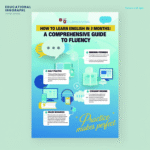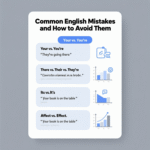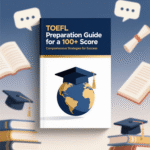In today’s competitive job market, crafting a resume that stands out is critical to securing an interview. With the rise of Applicant Tracking Systems (ATS), job seekers must strategically optimize their resumes to ensure they pass through these automated filters. ATS software scans resumes for specific resume keywords that align with job descriptions, determining which candidates move forward. We understand the importance of tailoring your resume to beat these systems, and in this comprehensive guide, we provide an in-depth look at 15 resume keywords that can significantly boost your chances of landing your dream job. This 8000-word article dives into the nuances of ATS optimization, offers actionable strategies, and equips you with the tools to craft a resume that resonates with both technology and human recruiters.
- Understanding Applicant Tracking Systems and Their Role in Recruitment
- The Top 15 Resume Keywords to Beat Applicant Tracking Systems
- 1. Project Management
- 2. Data Analysis
- 3. Leadership
- 4. Communication Skills
- 5. Problem-Solving
- 6. Team Collaboration
- 7. Digital Marketing
- 8. Customer Service
- 9. Technical Skills
- 10. Agile Methodology
- 11. Strategic Planning
- 12. Process Improvement
- 13. Sales Growth
- 14. Risk Management
- 15. Innovation
- Strategies for Incorporating Resume Keywords Effectively
- Tailor Your Resume for Each Job Application
- Use Keywords in Context
- Optimize Resume Formatting for ATS
- Balance Keywords with Readability
- Common Mistakes to Avoid When Using Resume Keywords
- Industry-Specific Resume Keywords for 2025
- Tools and Resources for Identifying Resume Keywords
- How to Test Your Resume for ATS Compatibility
- The Future of ATS and Resume Keywords in 2025
- Suggestions and Recommendations
- 15 FAQs with Answers
- 1. What are resume keywords?
- 2. How do I find resume keywords for my industry?
- 3. Can I use the same resume for multiple job applications?
- 4. How many keywords should I include in my resume?
- 5. What happens if my resume doesn’t pass the ATS?
- 6. Are soft skills considered resume keywords?
- 7. How can I avoid keyword stuffing?
- 8. Do ATS systems prioritize exact keyword matches?
- 9. Can formatting affect ATS performance?
- 10. Should I include keywords in my cover letter?
- 11. How do I know if my resume is ATS-friendly?
- 12. Are industry-specific keywords more effective?
- 13. Can I use keywords in my LinkedIn profile?
- 14. How often should I update my resume keywords?
- 15. What if I don’t have experience with a keyword?
Understanding Applicant Tracking Systems and Their Role in Recruitment
Applicant Tracking Systems are software tools used by employers to streamline the hiring process. These systems filter resumes by scanning for resume keywords, skills, and qualifications that match the job posting. According to industry studies, over 90% of large companies and many mid-sized firms rely on ATS to manage high volumes of applications. Without proper optimization, even the most qualified candidates risk being filtered out. We explore how ATS algorithms work, why resume keywords matter, and how to strategically incorporate them to ensure your resume reaches human recruiters.
How ATS Algorithms Evaluate Resumes
ATS platforms, such as Taleo, Workable, and Greenhouse, use complex algorithms to parse resumes and rank candidates based on relevance. These systems prioritize resumes that closely match the job description, focusing on specific resume keywords, phrases, and formatting. For example, if a job posting emphasizes “project management” and “data analysis,” the ATS will scan for these exact terms or their variations. We recommend tailoring your resume for each job application, ensuring that the language mirrors the job posting while maintaining natural readability.
Why Resume Keywords Are Critical for ATS Success
Resume keywords act as the bridge between your qualifications and the employer’s needs. These are specific words or phrases that reflect the skills, experiences, and qualifications outlined in the job description. By incorporating resume keywords strategically, you signal to the ATS that your resume is relevant. For instance, a marketing role may prioritize terms like “digital marketing,” “SEO,” or “content strategy.” We advise job seekers to analyze job postings carefully, identifying recurring terms and integrating them seamlessly into their resumes.
The Top 15 Resume Keywords to Beat Applicant Tracking Systems
To help you navigate the complexities of ATS, we’ve compiled a list of 15 resume keywords that are universally effective across industries. These keywords are drawn from common job postings and ATS trends in 2025, ensuring your resume aligns with current hiring practices. Below, we break down each keyword, explain its relevance, and provide practical tips for incorporating it into your resume.
1. Project Management
Project management is a highly sought-after skill across industries, from tech to construction. ATS systems frequently scan for this term to identify candidates capable of overseeing tasks, timelines, and teams. To optimize your resume, include project management in your skills section, job descriptions, or accomplishments. For example:
- Example: “Led project management initiatives for a $2M software development project, delivering results 15% under budget.”
- Tip: Use variations like “project manager,” “project coordination,” or “program management” to increase ATS compatibility.
2. Data Analysis
With data-driven decision-making at the core of modern businesses, data analysis is a critical keyword. Employers seek candidates who can interpret data to drive insights. Incorporate this term in your experience section, highlighting specific tools like Excel, SQL, or Tableau.
- Example: “Conducted data analysis using Python and Tableau to optimize marketing campaigns, increasing ROI by 20%.”
- Tip: Mention specific metrics or tools to demonstrate expertise and align with ATS requirements.
3. Leadership
Leadership is a timeless keyword that signals your ability to guide teams and drive results. ATS systems prioritize this term for roles requiring managerial or supervisory skills. Highlight leadership in your achievements or job duties.
- Example: “Demonstrated leadership by mentoring a team of 10 engineers to achieve a 98% project completion rate.”
- Tip: Use synonyms like “team leadership,” “management,” or “supervisory skills” to diversify your keyword usage.
4. Communication Skills
Effective communication skills are essential for collaboration and client interactions. This keyword is prevalent in job postings across industries, making it a must-have for ATS optimization.
- Example: “Leveraged communication skills to negotiate contracts with vendors, reducing costs by 12%.”
- Tip: Pair this keyword with specific outcomes, such as presentations or stakeholder engagement, to enhance impact.
5. Problem-Solving
Employers value candidates who excel at problem-solving, as it reflects critical thinking and adaptability. ATS systems often prioritize this term for roles requiring analytical skills.
- Example: “Applied problem-solving techniques to streamline supply chain processes, reducing delivery times by 25%.”
- Tip: Highlight specific challenges and solutions to make this keyword actionable.
6. Team Collaboration
Team collaboration underscores your ability to work effectively with others. This keyword is particularly relevant for roles requiring cross-functional teamwork.
- Example: “Fostered team collaboration across departments to launch a new product line, increasing sales by 30%.”
- Tip: Use related terms like “cross-functional teamwork” or “collaboration” to broaden ATS matches.
7. Digital Marketing
For marketing roles, digital marketing is a high-impact keyword. ATS systems scan for this term to identify candidates with expertise in online strategies, such as SEO, PPC, or social media.
- Example: “Developed digital marketing campaigns that boosted website traffic by 40% through targeted SEO strategies.”
- Tip: Include specific platforms or tools, like Google Ads or HubSpot, to strengthen relevance.
8. Customer Service
Customer service is a versatile keyword applicable to roles in retail, hospitality, and tech support. ATS systems prioritize this term for roles requiring client interaction.
- Example: “Enhanced customer service protocols, achieving a 95% satisfaction rate across 500+ client interactions.”
- Tip: Quantify results, such as satisfaction scores or client retention rates, to make this keyword stand out.
9. Technical Skills
Technical skills encompass a wide range of proficiencies, from coding to software expertise. This keyword is critical for tech-related roles and is frequently scanned by ATS.
- Example: “Applied technical skills in Java and Python to develop scalable applications for enterprise clients.”
- Tip: List specific programming languages or tools to align with the job description.
10. Agile Methodology
Agile methodology is a buzzword in tech and project management roles. ATS systems prioritize this term for roles requiring iterative development processes.
- Example: “Implemented Agile methodology to accelerate software development cycles, reducing time-to-market by 20%.”
- Tip: Mention certifications like Scrum Master to enhance credibility.
11. Strategic Planning
Strategic planning reflects your ability to set long-term goals and execute them effectively. This keyword is common in leadership and management roles.
- Example: “Drove strategic planning initiatives to expand market share by 15% in two years.”
- Tip: Highlight measurable outcomes to demonstrate the impact of your strategic efforts.
12. Process Improvement
Process improvement is a keyword that showcases your ability to optimize workflows and increase efficiency. ATS systems prioritize this term for operational roles.
- Example: “Led process improvement initiatives that reduced operational costs by 18% through lean methodologies.”
- Tip: Reference methodologies like Six Sigma or Lean to add specificity.
13. Sales Growth
Sales growth is a powerful keyword for roles in sales, marketing, or business development. ATS systems scan for this term to identify candidates who drive revenue.
- Example: “Achieved sales growth of 25% year-over-year by implementing targeted outreach strategies.”
- Tip: Include specific metrics to quantify your contributions.
14. Risk Management
Risk management is critical for industries like finance, healthcare, and IT. This keyword signals your ability to mitigate challenges and ensure compliance.
- Example: “Developed risk management protocols that reduced compliance violations by 30%.”
- Tip: Mention relevant frameworks, such as ISO 31000, to strengthen your resume.
15. Innovation
Innovation highlights your ability to think creatively and drive change. ATS systems prioritize this term for roles requiring forward-thinking solutions.
- Example: “Spearheaded innovation by introducing AI-driven tools, improving operational efficiency by 22%.”
- Tip: Pair this keyword with specific examples of creative solutions or technologies.
Strategies for Incorporating Resume Keywords Effectively
While identifying resume keywords is crucial, incorporating them effectively is equally important. We outline proven strategies to ensure your resume is ATS-friendly while remaining compelling to human recruiters.
Tailor Your Resume for Each Job Application
Every job posting is unique, and so should your resume. Analyze the job description to identify recurring resume keywords and incorporate them into your skills, experience, and summary sections. For example, if a job emphasizes “customer relationship management,” ensure this phrase appears in your resume naturally.
Use Keywords in Context
ATS systems prioritize keywords that appear in context, not just as standalone terms. Instead of listing resume keywords in a vacuum, weave them into your accomplishments and job duties. For instance, rather than stating “project management,” describe how you “successfully led project management efforts to deliver a $1M initiative on time.”
Optimize Resume Formatting for ATS
ATS systems struggle with complex formatting, such as tables, graphics, or unconventional fonts. To ensure your resume keywords are scannable, use a clean, text-based format with standard fonts like Arial or Times New Roman. Avoid headers, footers, or images that may confuse the software.
Balance Keywords with Readability
While ATS optimization is critical, your resume must also appeal to human recruiters. Avoid keyword stuffing, which can make your resume appear unnatural. Instead, integrate resume keywords seamlessly into well-crafted sentences that highlight your achievements.
Common Mistakes to Avoid When Using Resume Keywords
Even with the right resume keywords, certain pitfalls can undermine your ATS success. We highlight common mistakes and how to avoid them.
Overusing Keywords
Excessive repetition of resume keywords can trigger ATS filters, flagging your resume as spam. Aim for a natural density, using keywords 3-5 times in a contextually relevant manner.
Ignoring Synonyms and Variations
ATS systems often recognize synonyms or related terms. For example, if a job posting uses “team leadership,” including “team management” or “supervisory skills” can broaden your resume’s compatibility.
Neglecting Soft Skills
While technical keywords like data analysis or project management are critical, soft skills like communication skills or problem-solving are equally important. Balance both to create a well-rounded resume.
Using Incorrect Job Titles
ATS systems may prioritize exact job titles from the posting. If the job is for a “Senior Software Engineer,” avoid generic titles like “Developer” and align your resume accordingly.
Industry-Specific Resume Keywords for 2025
Different industries prioritize different resume keywords. We provide tailored examples for key sectors to help you optimize your resume further.
Technology and IT
- Keywords: Cloud computing, cybersecurity, software development, DevOps, machine learning
- Example: “Designed cloud computing solutions using AWS, improving system scalability by 35%.”
Healthcare
- Keywords: Patient care, clinical research, healthcare compliance, EMR systems, medical coding
- Example: “Streamlined patient care protocols, reducing wait times by 15% in a 200-bed facility.”
Finance
- Keywords: Financial analysis, budgeting, risk management, compliance, forecasting
- Example: “Conducted financial analysis to identify cost-saving opportunities, saving $500K annually.”
Marketing
- Keywords: Digital marketing, SEO, content strategy, brand management, PPC advertising
- Example: “Optimized SEO strategies, increasing organic traffic by 50% in six months.”
Tools and Resources for Identifying Resume Keywords
To maximize your ATS success, leverage tools that help identify resume keywords and optimize your resume.
Job Description Analyzers
Tools like Jobscan or Resunate analyze job postings and your resume, highlighting missing resume keywords and suggesting improvements.
Keyword Research Tools
Platforms like WordStream or Google Keyword Planner can help identify industry-specific resume keywords trending in job postings.
Professional Resume Review Services
Consider professional services that offer ATS optimization, ensuring your resume aligns with industry standards and job requirements.
How to Test Your Resume for ATS Compatibility
Before submitting your resume, test its ATS compatibility to ensure resume keywords are effectively parsed.
Use ATS Simulators
Free tools like Jobscan’s ATS simulator allow you to upload your resume and a job description, providing a match rate and suggestions for improvement.
Submit to Multiple ATS Platforms
Different ATS systems parse resumes differently. Test your resume on platforms like Taleo or Workable to ensure broad compatibility.
Seek Feedback from Recruiters
If possible, ask recruiters or hiring managers to review your resume for ATS-friendliness and human appeal.
The Future of ATS and Resume Keywords in 2025
As ATS technology evolves, so do the strategies for optimization. We explore emerging trends in ATS and how they impact resume keywords.
AI-Powered ATS Systems
Modern ATS platforms use AI to analyze resumes more holistically, focusing on context and intent behind resume keywords. This shift emphasizes the need for natural, meaningful keyword integration.
Increased Focus on Soft Skills
As companies prioritize cultural fit, ATS systems are beginning to weigh soft skills like communication skills and team collaboration more heavily.
Integration with Social Media Profiles
Some ATS platforms now cross-reference resumes with LinkedIn profiles. Ensure your LinkedIn includes relevant resume keywords to reinforce your application.
Suggestions and Recommendations
To maximize your resume’s ATS success, we recommend the following:
- Customize for Each Role: Tailor your resume to each job posting, incorporating resume keywords directly from the description.
- Use a Clean Format: Stick to simple, ATS-friendly formats with clear headings and no graphics.
- Quantify Achievements: Pair resume keywords with measurable results to appeal to both ATS and human recruiters.
- Stay Updated: Monitor industry trends to incorporate emerging resume keywords relevant to your field.
- Leverage Tools: Use ATS simulators and keyword analyzers to refine your resume before submission.
15 FAQs with Answers
1. What are resume keywords?
Resume keywords are specific words or phrases in a job posting that ATS systems scan for to identify qualified candidates.
2. How do I find resume keywords for my industry?
Analyze job postings, use tools like Jobscan, or research industry trends to identify relevant resume keywords.
3. Can I use the same resume for multiple job applications?
No, tailor your resume for each job to include specific resume keywords from the job description.
4. How many keywords should I include in my resume?
Aim for 3-5 uses of key resume keywords, ensuring they fit naturally within the context.
5. What happens if my resume doesn’t pass the ATS?
Resumes that don’t match resume keywords may be filtered out, preventing them from reaching human recruiters.
6. Are soft skills considered resume keywords?
Yes, soft skills like communication skills or problem-solving are often scanned by ATS systems.
7. How can I avoid keyword stuffing?
Incorporate resume keywords naturally into sentences, focusing on achievements and context.
8. Do ATS systems prioritize exact keyword matches?
Many ATS systems recognize synonyms, but using exact resume keywords from the job posting improves compatibility.
9. Can formatting affect ATS performance?
Yes, complex formatting like tables or images can confuse ATS. Use simple, text-based formats.
10. Should I include keywords in my cover letter?
While cover letters are less likely to be scanned, including resume keywords can reinforce your application.
11. How do I know if my resume is ATS-friendly?
Test your resume using ATS simulators like Jobscan to ensure resume keywords are properly parsed.
12. Are industry-specific keywords more effective?
Yes, industry-specific resume keywords like digital marketing or patient care align closely with job requirements.
13. Can I use keywords in my LinkedIn profile?
Yes, incorporating resume keywords in your LinkedIn profile can enhance ATS compatibility and recruiter visibility.
14. How often should I update my resume keywords?
Update your resume for each application, reflecting the latest resume keywords from job postings.
15. What if I don’t have experience with a keyword?
Highlight transferable skills or take online courses to gain proficiency in relevant resume keywords.




















